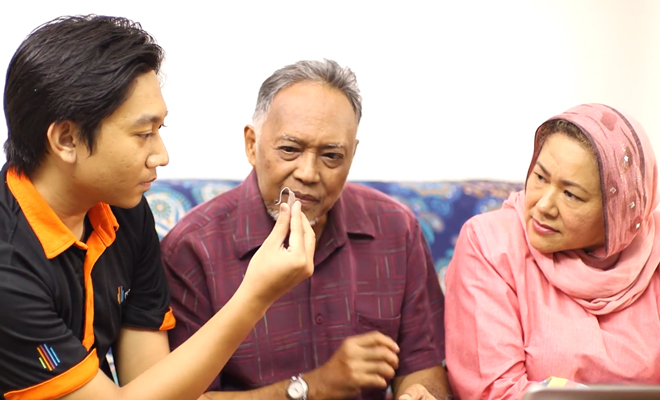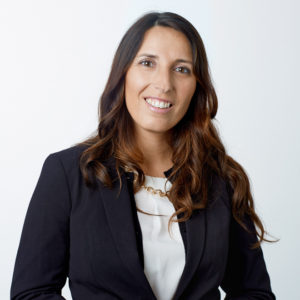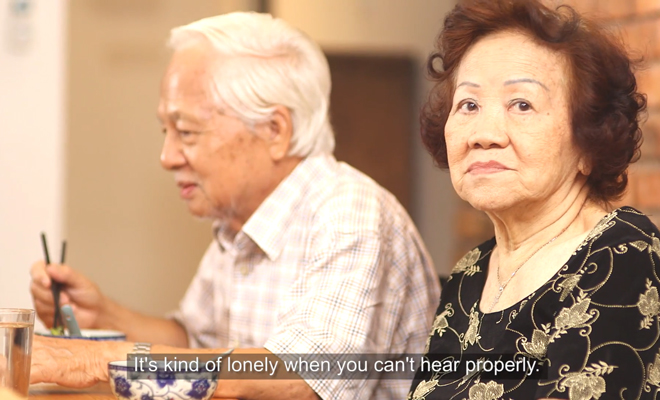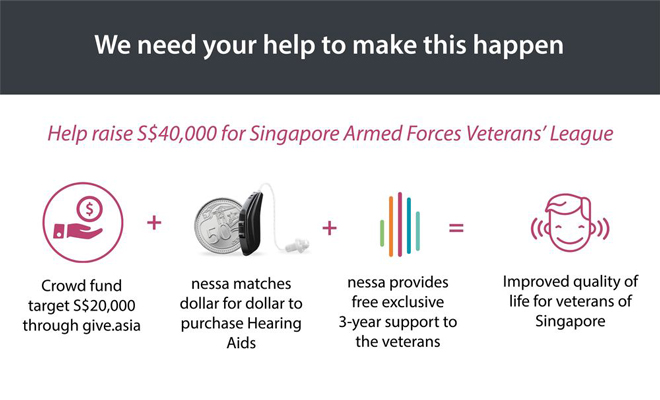
Health x Wellness
Interview with Paula Pinheiro, Audiologist at nessa
When it comes to health and wellness, a competent and qualified practitioner is a necessity. And when it comes to audiology, you are in good hands with Ms Paula Pinheiro, nessa’s chief audiologist. We spoke to Paula about how to manage hearing loss well and how nessa helps its customers achieve a better quality of life.
 Paula has over 18 years of experience in the hearing aid industry, with great experience in the areas of hearing aid fitting and rehabilitation, along with vestibular testing and rehabilitation. She has been Singapore for a few years now, having completed her Master of Audiology here at NUS in 2015.
Paula has over 18 years of experience in the hearing aid industry, with great experience in the areas of hearing aid fitting and rehabilitation, along with vestibular testing and rehabilitation. She has been Singapore for a few years now, having completed her Master of Audiology here at NUS in 2015.
In addition, she also has the necessary expertise in Paediatric Audiology, Cochlear Implants, Tinnitus, and Central Auditory Processing Disorders (CAPD). Her research study on “The economic impact and cost of Hearing loss in Singapore” is being used as a reference for several discussions about the importance of addressing hearing loss.
The Portugal native is driven by a desire to destigmatise hearing loss and make hearing aids available to those who need them. It is a core value that she shares with nessa, which led her to join the company. “When I first heard about their innovative subscription model and its focus on patient satisfaction, I thought that this would be a great match,” she added.
[AA] What are the common issues faced by people with hearing loss?
[PP] Usually, people affected by hearing loss will have more difficulties in situations where there’s background noise, so one of the main complaints is that in social situations they can hear, but they can’t understand what others are saying – this affects their family, social and work life.
If you’re not able to understand what others are saying, you will start to avoid these situations, which will cause social withdrawal and might lead to depression, among other problems. Recent studies show evidence that there’s a link between untreated hearing loss and the early onset of dementia, and it also seems to be linked to cognitive decline. [include links]
Most people are not aware that hearing loss can be a very debilitating condition.

[AA] I think hearing loss is a condition that’s quite well-known, but I don’t think people would ever have thought it is debilitating?
[PP] In my opinion, this is worse than a condition that is visible and painful, as if it hurts, people will look for help, right?
Hearing loss is not painful and is invisible, people always think that others are speaking too softly, are mumbling, or they were just distracted. This difficulty in accepting that there’s a problem makes them wait too long – on average, seven to ten years – before they seek help. And then, the rehabilitation process is much more difficult and long, as the auditory system has been deprived of stimulation for so long.
[AA] What’s the best way to prevent this?
[PP] This is why doing a yearly hearing test and being fitted with hearing aids when diagnosed with hearing loss, even if it’s a mild hearing loss, is so important.

[AA] How does nessa help people who come to them?
[PP] Our aim is to help anyone that suspects they might have a hearing problem. We start by offering a free hearing test, and if hearing loss is confirmed, we counsel the patient on what’s the best solution for their problem. Hearing loss is an invisible problem, so usually, it takes a few years until people seek for help – we clearly see this happening, and when our members reach out to us they are usually at a stage where their hearing loss is quite noticeable. We do however also have people seeking for help at earlier stages, mainly brought in by their family members that are aware of the problem way before it is accepted by the person suffering from it.
Incidentally, we have also started an initiative to help raise money to purchase free hearing aids for the SAF Veterans League. Hearing loss is one of the most common injuries suffered by military personnel and many of our veterans while serving the nation. Unfortunately, not all are financially able to afford hearing aids. Hence, we have created a crowd funding page through giveasia to help.
(Editor’s note: You can view the crowd funding page here.)

[AA] Technically, people can have the free hearing test and just take their business elsewhere. What does nessa offer that will make them take up your services?
[PP] Nessa offers a 30-day commitment-free trial that allows a person diagnosed with hearing loss to try the hearing aids in their daily life and more importantly, allows them to be sure that there will be benefits from using hearing aids.
After the trial period, we offer a subscription model that includes different lifestyle privileges depending on the subscribed package.
We provide an array of services, such as free batteries during the subscription period (three years), extended warranty that covers against theft, loss or irreparable damages, the hearing aids included in our packages are made for iPhone and made for TV, which allows you to stream sound from your phone and TV directly to your hearing aids and we also offer home visits and remote support, so that our members can have immediate support from our team whenever they need.
With this superior service, we want to make sure that our members enjoy the full benefits they can get from their hearing aids and are able to fully enjoy life again.

[AA] Then what about psychological and emotional issues? How does nessa’s solution help its users to resolve them?
[PP] As previously shared, there is a multitude of emotional and behavioural problems that might be linked to untreated hearing loss. By using hearing aids, the auditory system will be stimulated again, and there will be a rehabilitation process that culminates with our members to hear better and understand better. That allows them to reconnect with their family members, with their friends and to live a full-fledged life again.
[AA] How long would this process take?
[PP] Obviously, this is not achieved from one day to the other. It takes time, and the success rate is closely related to other issues, such as dementia and cognitive decline. One important point that I would like to mention is the support from the family members, as this is extremely important for a good outcome to be achieved – we at nessa try our best to closely follow-up and counsel not only the hearing impaired but also their family members and definitely, if there’s good family engagement, the results are much better.
[AA] Why does it take a long time?
[PP] Well, as the patient auditory system was deprived of stimulation and when hearing aids are fitted, the auditory system starts to be stimulated again, and our brain needs time to readjust to this new reality.
If someone that has lived with hearing loss for the last five years starts to wear a hearing aid today, he or she will hear the birds singing, the aircon noise, the fridge noise, the noise from the cars outside in the street… And this is all new for them! They were not able to listen to these sounds anymore and now suddenly being able to, is strange and unnatural.
[AA] What’s a common misconception people have about hearing aids?
[PP] People usually think that hearing aids will enable them to hear speech only and that’s not possible. But our brain has the ability to focus on the sound we are interested in (that might be speech if we’re talking to someone else). When you have hearing loss, you lose this ability and when you start wearing hearing aids you don’t regain that ability on the spot – it requires time and training.

[AA] What advice would you give to people who suspect or have just found out that they have hearing loss?
[PP] Most people wait too long to seek for help and then when they do it, they expect a perfect and immediate solution – but it’s not so easy! It gets better with time and a little bit of persistence!
Therefore, counselling is in my opinion, the most important part of being fitted with hearing aids. Most patients are not explained about the rehabilitation process, and if they don’t understand it, most likely they will give up, or they will never be happy with their hearing aids, as the expectations are not realistic.
Having said this, I can also share that with nessa support, this habituation process can also be fun, as we have a reward system for patients during the trial period, that helps keep them engaged and turns this listening again journey into a pleasant one!
[AA] What’s the best way for someone to get in touch with nessa if they have any enquiries about the state of their hearing?
[PP] If you, or someone you know, think you might have a hearing problem, just give us a call (6817 3297) or logon to our website – www.nessa.asia. Our Hearing & Lifestyle Advisors will be able to help with your initial questions and schedule a completely FREE appointment for a hearing test. Take the first step; we will help with the rest!

This wellness advertorial series about hearing loss and how to deal with the condition has been brought to you by nessa. The company understands the difficulties that people with hearing loss face in trying to improve their condition with hearing aids. The nessa solution breaks down traditional barriers of cost, inconvenience and stigma associated with hearing aids, and offers users an affordable and fuss-free opportunity to have better hearing and a better life.









